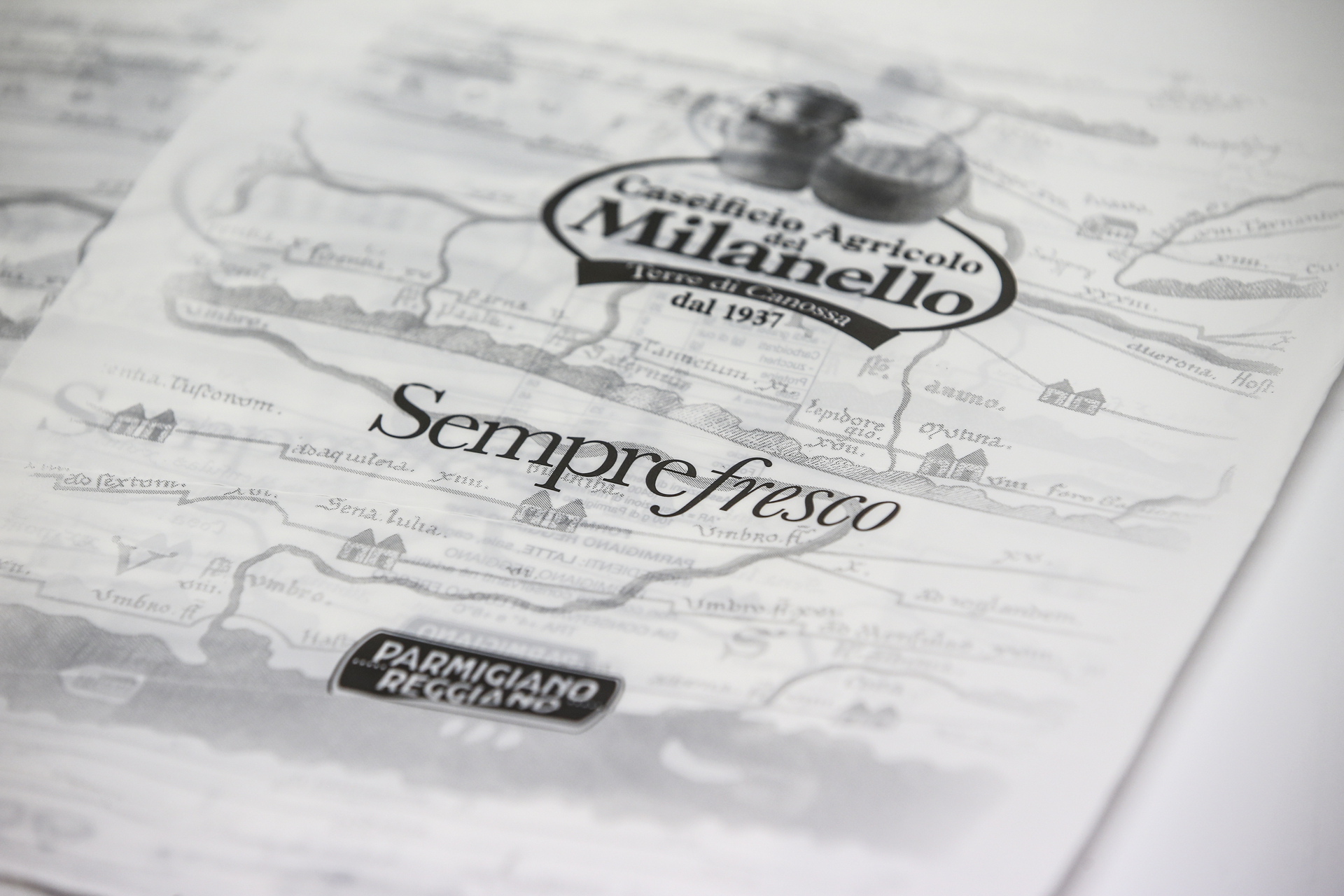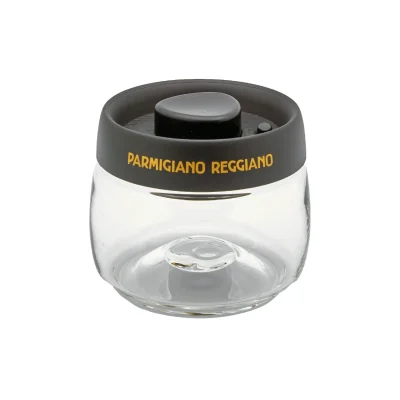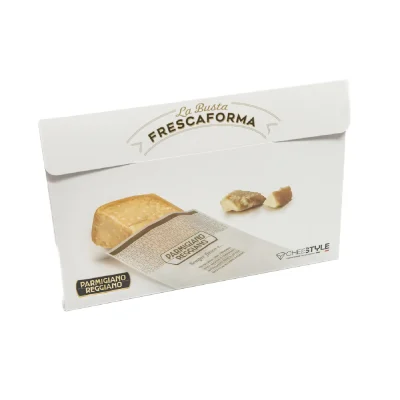Parmigiano Reggiano is one of the great gastronomic treasures of Emilia, a symbol of quality and authenticity recognised worldwide. Its unmistakable flavour and fragrance make it the perfect cheese to enrich various recipes and dishes, as well as to serve as a tasty appetiser, or grate over pasta.
For this very reason, storing Parmigiano correctly is essential if you want to preserve its unique qualities. Knowing a few practical tips you can apply at home will help maintain its taste, texture and organoleptic properties, while avoiding mould, hardening, and loss of aroma.
Here are some useful suggestions from our cheesemakers at Caseificio Milanello.
Storage methods and times depending on the type of Parmigiano
To keep the flavour and aroma of Parmigiano Reggiano intact, the Consortium recommends setting your fridge temperature between 4 and 8 °C. Stored correctly, a wheel can last for several months, always within the minimum shelf life indicated on the packaging.
However, storage methods may vary depending on the cheese itself: the techniques to apply have to suit the specific characteristics of the cheese type. Let’s look at the main cases.
Fresh or mature Parmigiano
The first distinction is ageing. A
In both cases, it’s important to check opened Parmigiano regularly. If it looks and smells fine, it can still be eaten beyond the recommended time. If you notice only small patches of mould, you can remove them with a knife and enjoy the rest. However, if the cheese shows significant discolouration or an altered smell, it’s strongly advised not to consume it.
Vacuum-packed or grated
Vacuum-packing is one of the most effective techniques for preserving Parmigiano’s organoleptic qualities. Once opened, it’s essential to keep the cheese at the
Home-grated Parmigiano, on the other hand, has a much shorter life. It should be eaten within 5–7 days, always checking its colour and aroma. Here too, an airtight container helps preserve its freshness and fragrance.
Tips for correctly storing Parmigiano in the fridge
To store Parmigiano in the fridge without compromising its taste or appearance, it’s paramount to follow a few simple rules. The two most common issues are mould and hardening. Here’s how to prevent them.
How to prevent Parmigiano going mouldy
Mould is one of the most common problems when storing Parmigiano Reggiano. Its natural level of humidity, which decreases with ageing, can encourage mould growth if altered.
To avoid this, we recommend keeping the cheese in airtight glass or plastic containers, or wrapping it in breathable food wrap and storing it in the fridge. This prevents condensation and preserves its natural qualities.
How to prevent Parmigiano hardening
Another frequent risk is that Parmigiano loses softness and becomes too hard. To avoid this, don’t use the ventilated setting on your fridge, as it can dry food excessively.
A traditional method to keep the cheese texture intact is to store it in a cotton bag. This allows the right amount of airflow while helping preserve its fragrance and natural freshness, keeping its flavour flawless. The bag can also be washed regularly, an important feature for ensuring proper hygiene.
False facts about storing Parmigiano
Over the years, we’ve been asked many questions about how best to store Parmigiano Reggiano. Often, popular beliefs become common practice, even when they’re not ideal. That’s why we want to debunk some of these myths, helping you store this precious cheese without compromising its quality.
Can you freeze Parmigiano?
Many wonder if Parmigiano can be frozen. Our answer? It’s
To fully enjoy its fragrance and flavour, Parmigiano should never be frozen. Freezing makes it lose much of what makes it unique. It’s far better to buy it fresh, in the right quantity each time.
Can Parmigiano be left at room temperature?
At our shops, Parmigiano can be displayed at room temperature for short periods without any issues, thanks to strict controls. Once purchased, however, it’s best to store it in a cool, dry place, making sure the packaging is intact.
At home, it should not be left out of the fridge for more than 4–5 days. Heat and temperature fluctuations may compromise its flavour and texture, while prolonged exposure to air can damage the cheese and speed up deterioration.
Parmigiano Reggiano is one of the most prized foods in our culinary tradition, the result of artisanal production with meticulous attention to detail. Knowing the right methods of storage means being able to enjoy its unmistakable taste and unique fragrance for a long time, respecting the work of those who, like us, care deeply about this unique cheese.
For more information about our products, come and visit us at our dairy in Via Milanello, Campegine, in the province of Reggio Emilia, or call us at 0522672215.



